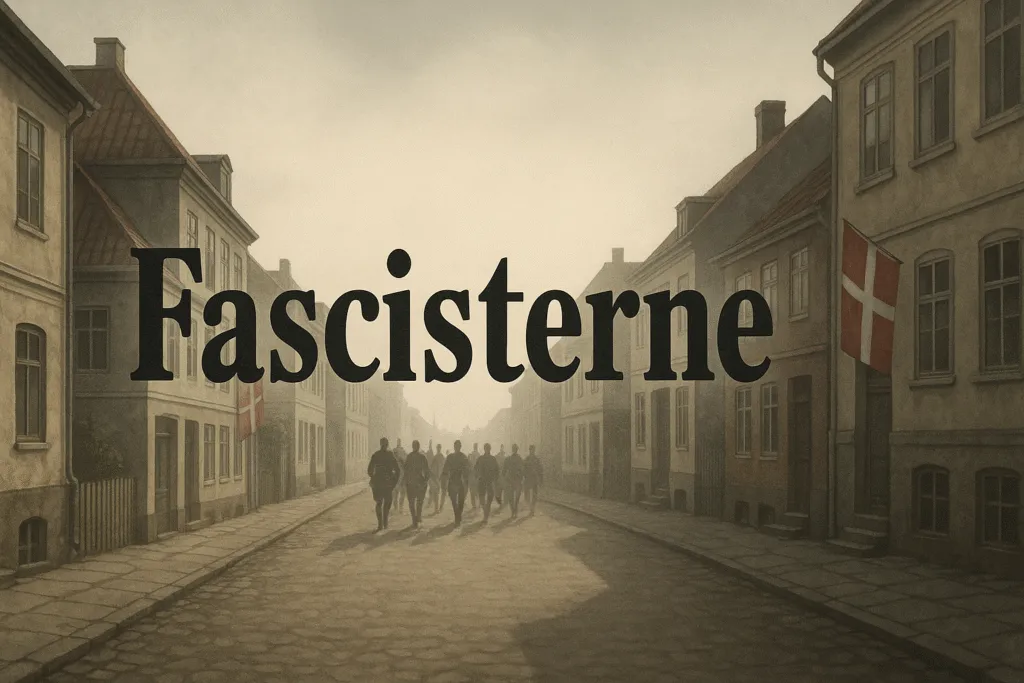In a world where political ideologies collide and the specter of authoritarianism looms large, understanding the origins of fascist thought is more crucial than ever. “The Ideological Roots of Fascisterne delves deep into the historical currents that shaped this controversial ideology, unraveling its complex tapestry woven from threads of nationalism, anti-liberalism, and social Darwinism. As we navigate through time—from post-World War I disillusionment to contemporary echoes—this exploration reveals not just how fascism took root but also why it continues to resonate in today’s discourse. Join us on this intellectual journey as we explore the philosophical foundations that laid the groundwork for one of history’s most contentious movements and examine their implications for our modern society. Are you ready to challenge your perspective? Let’s dive in!
Introduction to Fascisterne
Fascisterne is a term that evokes strong reactions and deep reflections on the political landscape. Understanding its origins is crucial, as it allows us to dissect not only historical events but also the ideologies that have shaped movements across time. This exploration goes beyond mere academic interest; it’s about grasping how past beliefs can influence modern society. By tracing the ideological roots of fascist thought, we uncover layers of complexity in governance and social dynamics that continue to resonate today. Join us as we delve into the foundations of Fascisterne and unravel its significance in our world now more than ever.
The Roots of Fascism: A Brief History
Fascism emerged as a political ideology in the early 20th century, primarily in Europe. Its roots trace back to various historical and social upheavals, particularly following World War I.
The disillusionment with traditional liberal democracy played a significant role. Many people felt betrayed by their governments, leading them to seek alternative solutions. This was an ideal breeding ground for radical ideas.
Influences came from earlier movements like nationalism and socialism. The desire for national rejuvenation and economic stability drove individuals toward extremist views.
Key figures such as Benito Mussolini in Italy began to articulate fascist principles, emphasizing authoritarian governance and militaristic nationalism. These ideas resonated deeply during a time of crisis.
As nations struggled with economic instability and social unrest, fascism found fertile ground for growth across Europe. Its rise marked a pivotal moment that would change the trajectory of history forever.
Key Ideologies and Philosophies that influenced Fascist Thought
Fascist thought emerged from a complex tapestry of ideologies. Nationalism played a pivotal role, emphasizing the supremacy of the state and unity among its people. This intense loyalty often overshadowed individual rights.
Another significant influence was authoritarianism, which rejected democratic principles in favor of centralized control. Leaders cultivated charisma to rally support, creating cult-like followings that stifled dissent.
Social Darwinism also shaped fascist beliefs. The idea that societies evolve through competition justified aggressive nationalism and militarism as means for survival.
Additionally, anti-communism fueled fascist movements across Europe. This ideology framed leftists as threats to societal order, uniting various factions under a common enemy.
Finally, elements of mysticism found their way into fascist rhetoric, invoking historical narratives and myths to legitimize their agendas. These diverse influences created a potent ideological mix that defined fascisterne’s emergence in modern history.
Rise of Fascism in the 20th Century: Events and Leaders
The rise of fascism in the 20th century marked a dramatic shift in global politics. It began in Italy under Benito Mussolini, who capitalized on post-World War I disillusionment. His aggressive nationalism and anti-communist sentiment resonated with many Italians.
Germany soon followed with Adolf Hitler’s ascent to power. The Nazi Party leveraged economic turmoil and social unrest, promoting a vision of racial superiority that deeply influenced European ideologies.
Fascism rapidly spread across Europe, finding support in Spain through Francisco Franco during its civil war. Meanwhile, other leaders emerged, each adapting fascist principles to their local contexts.
These figures were not merely political leaders; they embodied a dangerous blend of charisma and authoritarianism. Their regimes thrived on propaganda and suppression of dissent as they sought to reshape society according to their radical visions.
You Might Also Like : Lidarmos
Impact of Fascist Ideology on Society and Politics
Fascist ideology profoundly altered societal structures and political landscapes wherever it took root. It often promoted a sense of nationalism that marginalized minority groups, fostering division within communities.
The emphasis on authoritarian leadership led to the suppression of dissenting voices. Freedom of expression dwindled as propaganda became a primary tool for control. Citizens were encouraged to conform, stifling creativity and critical thought.
Economically, fascism reshaped industries through state intervention and corporatism. This shift aimed at unifying the nation’s economic power under strict government oversight but frequently favored elites over the working class.
In international relations, fascist regimes pursued aggressive expansionism. This created tensions with neighboring countries and set the stage for conflicts that had devastating consequences on a global scale.
These impacts resonate today, reminding us how ideologies can reshape societies in ways that may seem distant yet remain relevant in contemporary discussions about governance and social cohesion.
Contemporary Examples of Fascisterne and their Ideological Influences
Across the globe, contemporary manifestations of fascisterne can be observed in various political movements. These groups often rally around nationalism, promoting an “us versus them” mentality that seeks to unify supporters through a common identity.
In Europe, far-right parties have gained ground by capitalizing on economic anxieties and immigration concerns. Their rhetoric echoes historical fascist ideologies that prioritize ethnic homogeneity over multiculturalism.
Similarly, elements of fascisterne resonate in certain American political factions. Here, the emphasis on populism and a strongman leader reflects traits reminiscent of early 20th-century authoritarian regimes.
Social media plays a crucial role in amplifying these ideologies today. Platforms facilitate rapid dissemination of extremist views while fostering communities that celebrate divisive narratives.
Understanding these contemporary examples reveals how past ideologies adapt to modern landscapes, continuing to shape discourse across nations.
Understanding the Dangers of Fascist Thought in Modern Times
Fascist thought poses significant risks in today’s political landscape. Its resurgence can be traced to rising nationalism and xenophobia across the globe.
Modern fascisterne often exploit social media, spreading propaganda quickly and effectively. This allows extremist ideologies to infiltrate mainstream discourse, influencing public opinion in harmful ways.
The allure of authoritarianism can lead individuals to abandon democratic principles. A polarized society becomes fertile ground for division, hatred, and violence against marginalized communities.
As history shows, ignoring these dangers can have dire consequences. It is crucial to remain vigilant against any ideology that promotes intolerance or undermines individual freedoms.
Education plays a key role in combating fascist perspectives. Encouraging open dialogue about historical injustices helps people recognize the signs early on. Only through awareness and understanding can we hope to thwart the advance of such dangerous ideas today.
Conclusion: Lessons Learned from Tracing the Origins of Fascist Thought.
The exploration of fascisterne and its ideological roots reveals critical lessons for our times. Understanding the origins of fascist thought provides insight into how these ideas can resurface in various forms throughout history. It serves as a reminder that vigilance is necessary to counteract such ideologies.
As society evolves, it remains essential to reflect on past mistakes. The events leading up to the rise of fascism illustrate how easily fear and discontent can manipulate populations. Recognizing this pattern helps us build resilience against similar movements today.
Engaging with history allows us to foster discussions about tolerance, democracy, and human rights. By acknowledging the dangers inherent in extremist ideologies, we empower ourselves to create a more inclusive future.
Awareness is crucial; educating ourselves about the past equips us with tools needed for a healthier dialogue in contemporary politics. Every generation faces unique challenges shaped by historical context but remains responsible for choosing their path forward.

